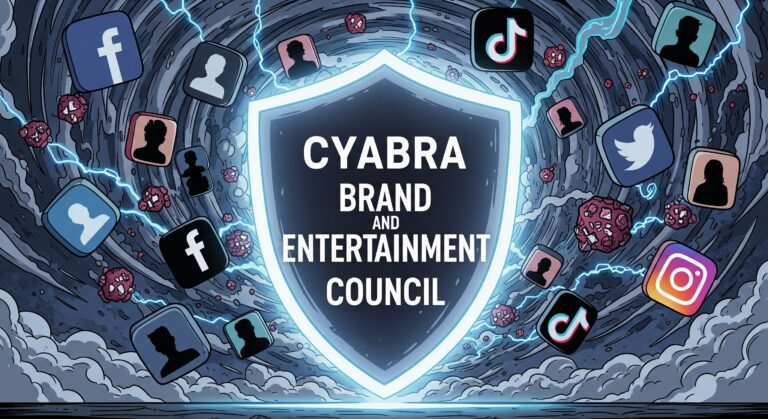Narratives are more than just stories; they are powerful tools that shape public perception and influence behavior.
A narrative can be created by anyone – from marketing agencies devising clever ways of promoting a product, to political strategists crafting a catchy slogan that best describes the core ideals of a candidate – to regular people voicing their opinions on social media.
Just as an effective marketing campaign can reshape someone’s views on a product, a false narrative has the power to completely sway the public’s opinion on important topics, making narratives a double-edged sword that can be both a force for good and a tool for manipulation.
The pattern of malicious actors spreading harmful narratives has been on the rise since 2016, when bots and troll farms began to be used more extensively, most notably during the 2016 US presidential election. Since then, the problem has only gotten worse, with new crises involving fake news and disinformation emerging nearly every day.
The rapid flow of information on social media platforms has made narrative analysis crucial for both private and public entities, as the impact of misleading or outright false stories can be devastating, even for the most well-established organizations.
What is Narrative Intelligence?
Narrative intelligence is used to fully understand, interpret, and respond to the narratives that circulate on social media. In a wider sense, it involves recognizing the underlying patterns, themes, and emotions of key talking points related to public figures, political events, or brands and companies.
By analyzing how narratives form and spread across social media platforms, narrative intelligence gives organizations the opportunity to gain a better understanding of public sentiment and the factors driving it.
For companies and brands, the information obtained through narrative intelligence is crucial in two ways.
First, it helps these entities detect ever-present threats posed by bad actors by monitoring and analyzing emerging narratives in real-time; and second, it allows them to take the necessary steps to mitigate the potential reputational and financial harm that can be caused by a purposeful narrative attack.
In essence, narrative intelligence allows companies and brands to put a stop to the negative discourse before it gets out of hand.
The Dangers Posed by a Narrative Attack

We have seen time and time again how fast misleading or harmful narratives can spread on social media. These fake or exaggerated stories, often meticulously thought out to appeal to people’s biases and emotions, are designed to spread quickly and resonate deeply with users on social media platforms.
A narrative attack typically begins when malicious individuals create or latch on to a story related to a trending or divisive topic.
Most commonly, this story is easily digestible and highly shareable on social media platforms – often targeting low-hanging fruit, such as far-fetched conspiracy theories or brand disinformation, to quickly capture attention and encourage widespread sharing.
In some cases, threat actors don’t need to rely on real users to share and engage with their content, as they often employ bot networks to artificially boost the content on people’s feeds.
By interacting with the posts en masse, these bots trick social media algorithms into believing that the content is highly relevant and engaging. As a result, the algorithms promote it to the top of users’ feeds, making it more visible and likely to be seen and engaged with by real users.
A narrative attack can take many forms, including fake or exaggerated news stories, misleading social media posts, or pictures and videos generated using AI to depict events that never actually happened – as long as it gets people riled up and emotionally invested, it effectively achieves its goal of manipulating public perception and spreading disinformation.
Long-lasting Impacts of Narrative Attacks
“It takes 20 years to build a good reputation and 5 minutes to ruin it.” – Warren Buffett
When “well-timed”, narrative attacks can have a devastating impact on an organization’s reputation. An attack initiated when a brand or government entity is in the midst of a crisis can be even more damaging than when they’re not already in turmoil, further jeopardizing their credibility and public perception, and in the case of companies, threatening their bottom line.
Perhaps the most frightening aspect of the spread of disinformation is its impact on society as a whole.
In trying times, such as during the Covid-19 pandemic, the widespread dissemination of false narratives directly endangered the lives of millions of people – a number that could have been drastically reduced with effective tracking and timely intervention to stop the spread of disinformation.
The fallout from a well-executed narrative attack can persist long after the initial crisis has subsided. Trust can’t be bought or easily restored once broken, and it can take years to rebuild it, which is why investing in tools that can halt the spread of dis- and misinformation is paramount for both public and private entities.
Cyabra: The Antidote to the Poison of Narrative Attacks
Cyabra’s platform is capable of analyzing large amounts of information on social media and performing advanced narrative detection to track the epicenter of the spread of disinformation.
Using state-of-the-art AI and ML algorithms, Cyabra can pinpoint how, who, and where an existing narrative started, effectively helping protect your brand from both financial and reputational damage.


